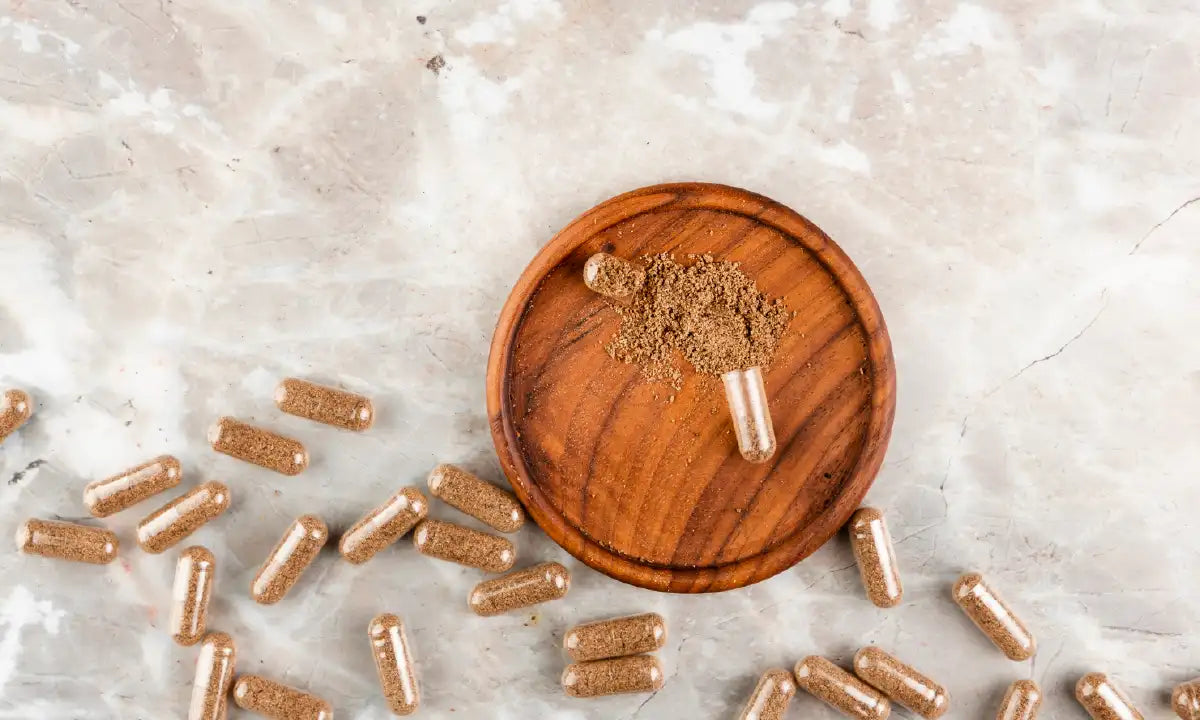Estimated Reading Time: 4 minutes
|Are you struggling with constipation, bloating, or irregular bathroom trips? You’re not alone! Millions of people worldwide experience digestive problems.
Increasingly, people like you today are turning to fiber supplements to support their digestion. But is it the real solution? Or just a temporary fix?
Let’s dive into how fiber supplements work, their benefits, and whether they are right for you.
What Is Fiber and Why Is It Important for Digestion?
Fiber is a type of carbohydrate that your body can’t fully break down or absorb. Instead, it moves through your stomach, into your intestines, and out of your body pretty much the same as when you ate it!
Fiber is super important for digestion because it:
-
Helps make your poop bigger and softer
-
Keeps things moving smoothly through your gut
There are two types of fiber:
-
Soluble fiber: Dissolves in water and forms a gel. It can help lower blood sugar and cholesterol.
-
Insoluble fiber: Does not dissolve in water. It helps food move through your digestive system.
Most healthy foods, such as oats, fruits, and vegetables, contain both types. Eating enough fiber every day is key for a healthy gut!
But why are people turning to fiber supplements more and more? Let’s find out.
Why Are Fiber Supplements So Popular?
Even though you know fiber is important, you still don’t eat enough of it. Fast food, busy schedules, and poor eating habits are big reasons why.
Fiber supplements are a convenient and quick way to increase your fiber intake. They come in various forms, such as powders, pills, and gummies.
People love them because of 3 reasons:
-
Easy to use
-
Affordable
-
Helpful for people who travel or have unpredictable meals
Fiber supplements can help prevent constipation and keep your gut healthy. But, do they work? Let's explore.
Do Fiber Supplements Work?
Good news! Many studies show fiber supplements do work mainly in 3 ways:
-
They make it easier to poop regularly
-
They can help soften your stool
-
Help in proper movement of food in the digestive tract
One popular fiber, psyllium husk, absorbs water, making stool softer and easier to pass. Fiber supplements can also help people with irritable bowel syndrome (IBS).
However, they work best when you also eat healthy foods. Supplements are helpful, but they should not replace natural foods!
4 Types of Fiber Supplements
Each type of fiber supplements serve different purposes.
Here are a few popular types:
-
Psyllium Husk (Metamucil)
Good for making stools bigger and softer.
-
Inulin
It helps feed the good bacteria in your gut but may cause flatulance.
-
Methylcellulose (Citrucel)
A man-made fiber that eases your digestion without the embarrassing flatulance.
-
Wheat Dextrin (Benefiber)
Easy to mix with water and suitable for light digestive support.
Tip: Always read labels and ask your doctor if you’re not sure which one to use.
Possible Side Effects of Fiber Supplements
Fiber supplements are safe for most people, but they can cause some issues, like:
-
Bloating
-
Gas
-
Cramping
These problems typically occur when you start with too much fiber too quickly. Start small and drink lots of water (about 8–10 glasses a day).
Additionally, fiber can sometimes interact with how your medications work, so consult your doctor if you are taking any medications.
Natural Fiber vs. Fiber Supplements: Which Is Better?
Natural fiber from food is the best! Whole foods like fruits, veggies, beans, and whole grains give you:
-
Fiber
-
Minerals
-
Antioxidants
Fiber supplements are helpful when you can’t get enough fiber from food. But they should be a backup plan, not your first choice!
Eating real foods also helps feed the healthy bacteria in your gut, which keeps your immune system strong.
Top Foods High in Fiber
Want to boost your fiber naturally? Eat more of these:
-
Oats
-
Lentils
-
Chia seeds
-
Berries
-
Broccoli
-
Avocados
-
Apples (with skin)
-
Brussels sprouts
Keep in mind: Try to eat 25-30 grams of fiber every day.
How to Add Fiber Supplements Safely
If you want to try fiber supplements, here’s how to do it safely:
-
Start with a small amount
-
Drink lots of water
-
Choose the right supplement for your needs
-
Watch how your body reacts
-
Keep eating fiber-rich foods too
Patience and consistency are key!
Conclusion: Are Fiber Supplements the Secret?
Fiber supplements can aid in smooth digestion, but they are not a complete solution. For long-term gut health, it’s really about consuming a diet high in natural fiber (they are the real secret).
Watch your use of fiber supplements in addition to a healthy diet. Your digestive tract will be grateful for the extra love and attention!
Remember: Good digestion starts with small, daily choices; and sometimes a little extra fiber boost helps!
FAQs
Q1. Can I take fiber supplements every day?
Yes, but follow the label directions and drink plenty of water.
Q2. How fast do fiber supplements work?
Most people see results in a few days to a week.
Q3. What is the best fiber supplement for constipation?
Psyllium husk is often the best choice.
Q4. Can fiber supplements cause bloating?
Yes, especially if you take too much too quickly or don't drink enough water.
Q5. Should I still eat fiber-rich foods if I take supplements?
Yes! Whole foods give you even more health benefits.
Disclaimer: This article is for educational purposes only. It is not a replacement for medical advice. Always talk to your doctor or a health professional if you have health concerns or before starting new treatments.






































